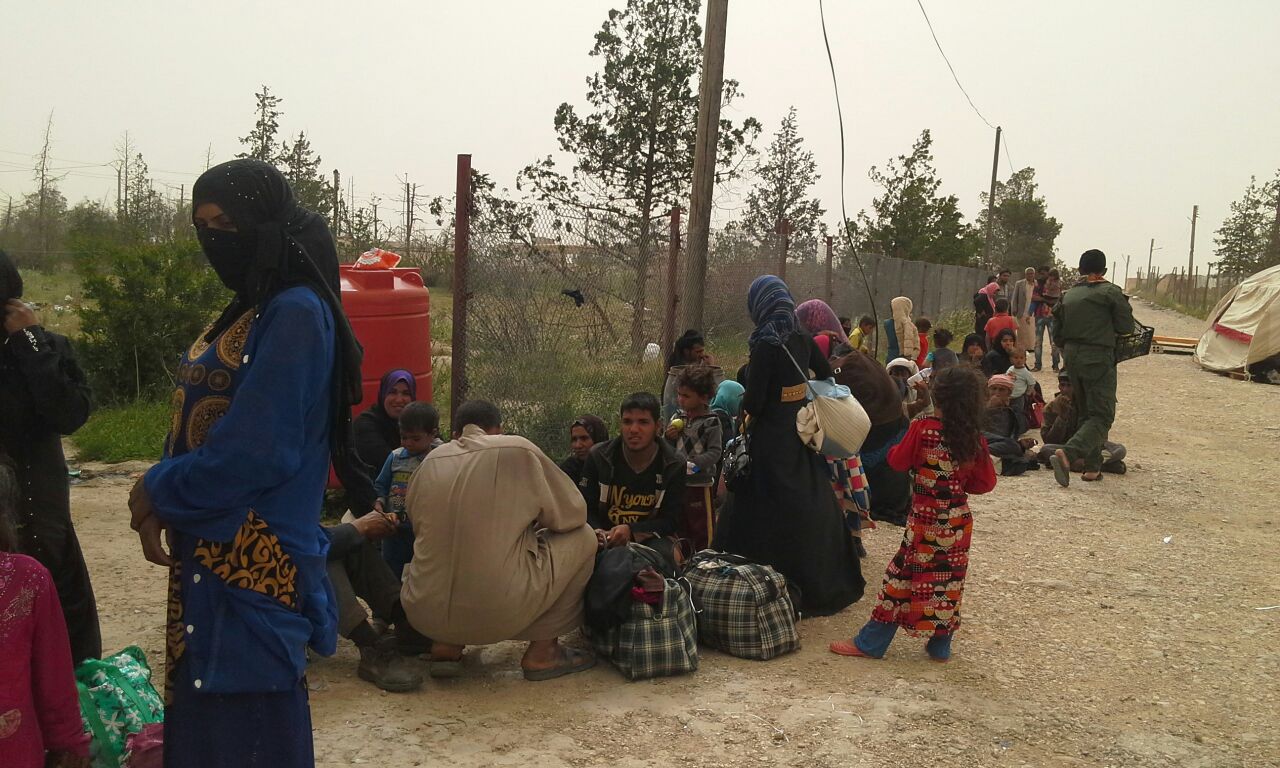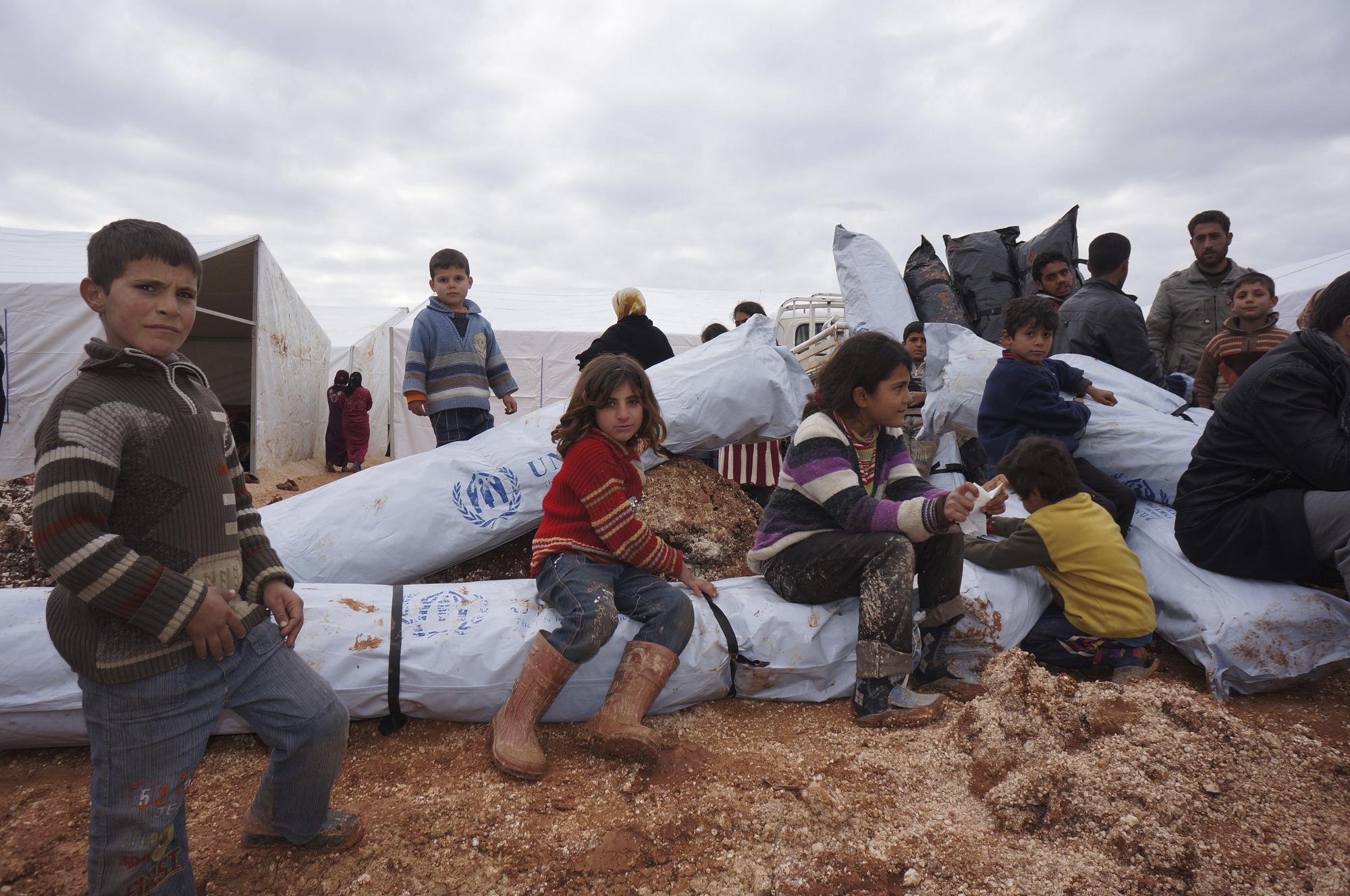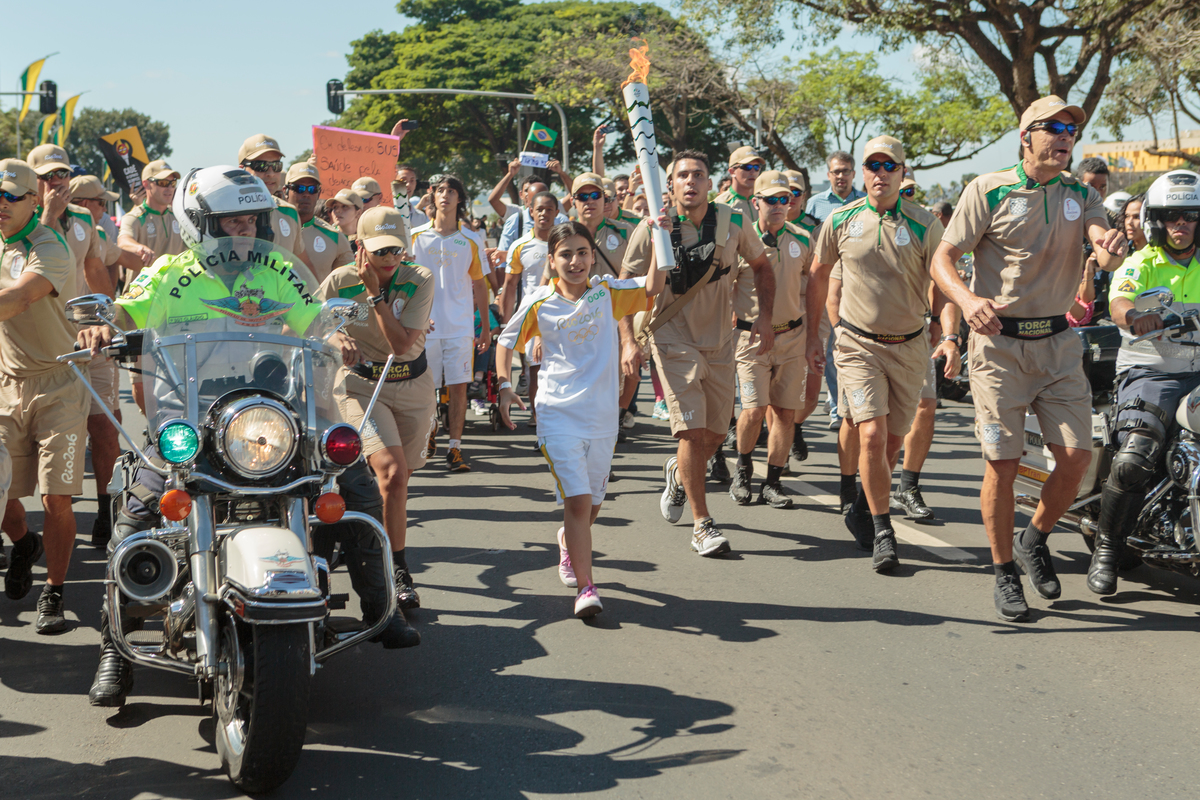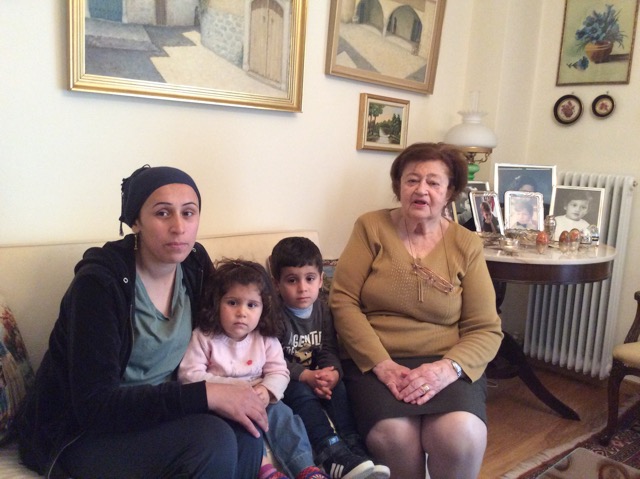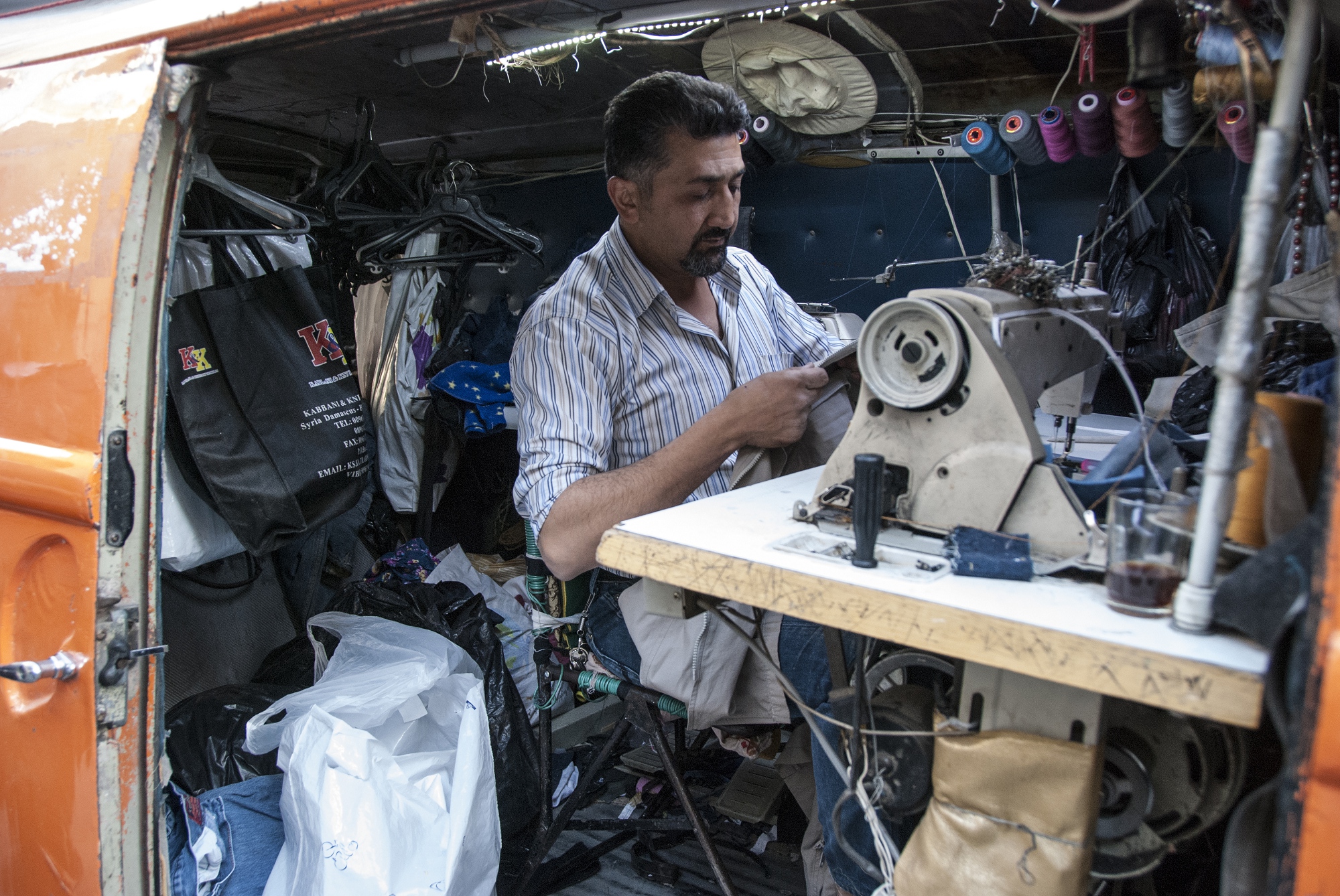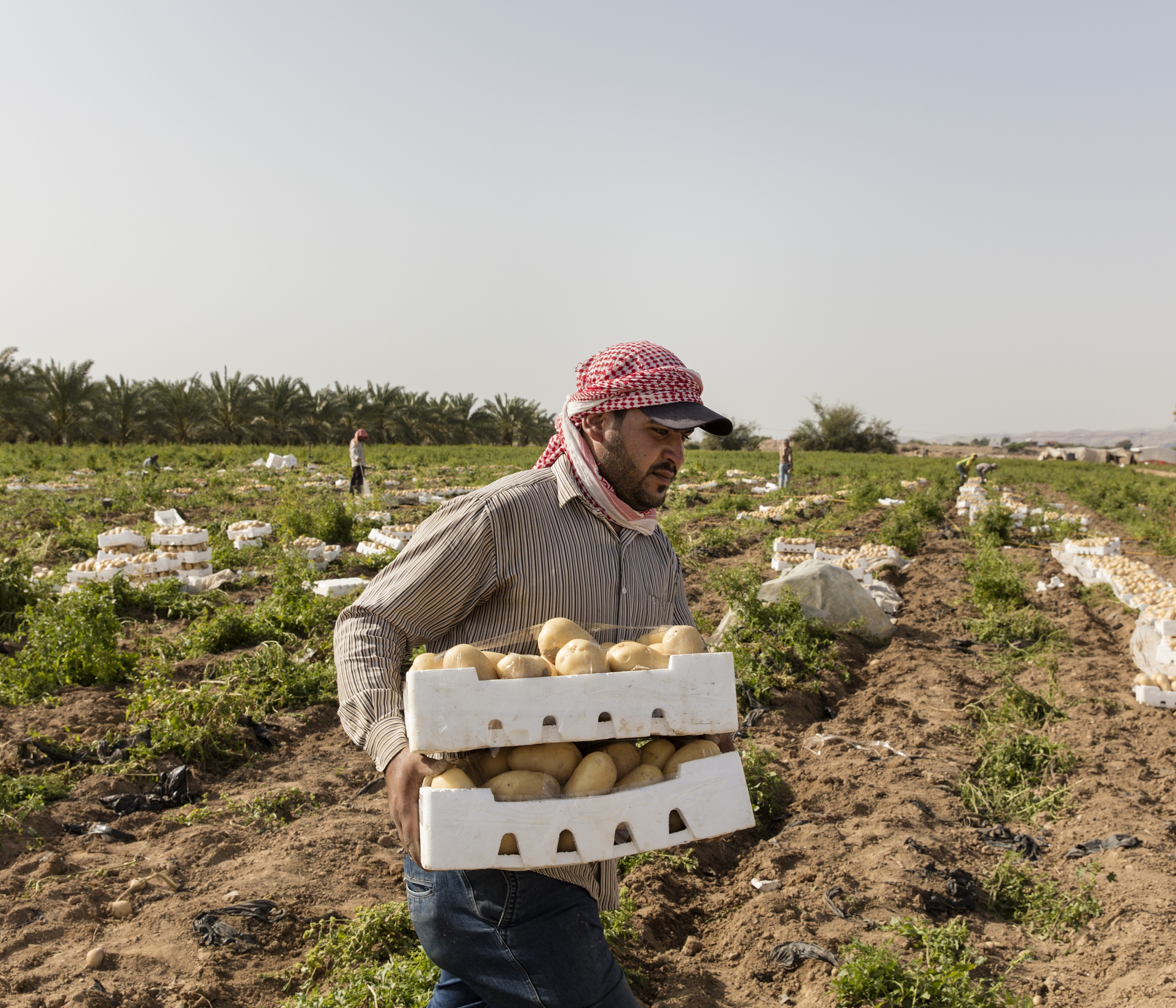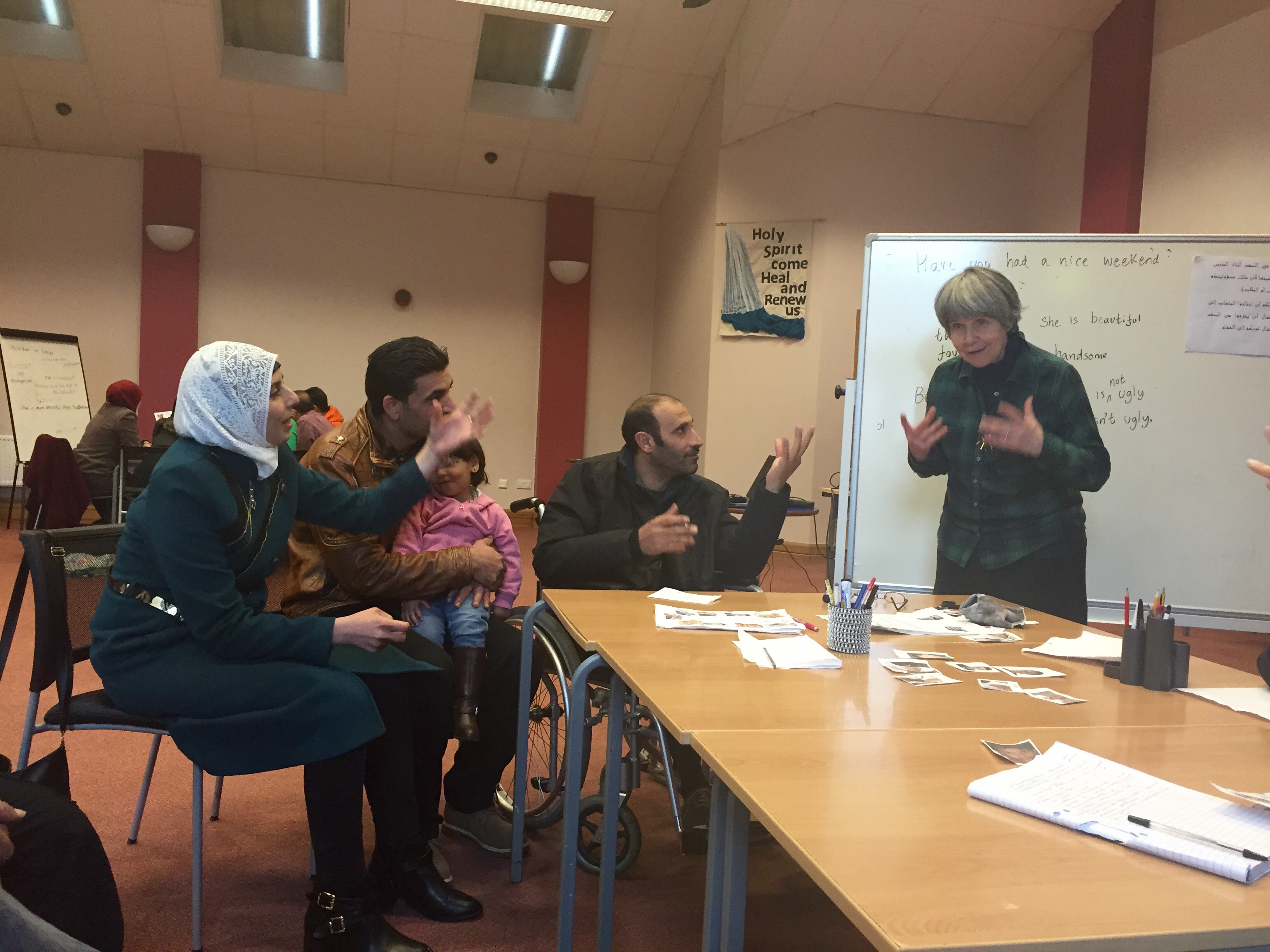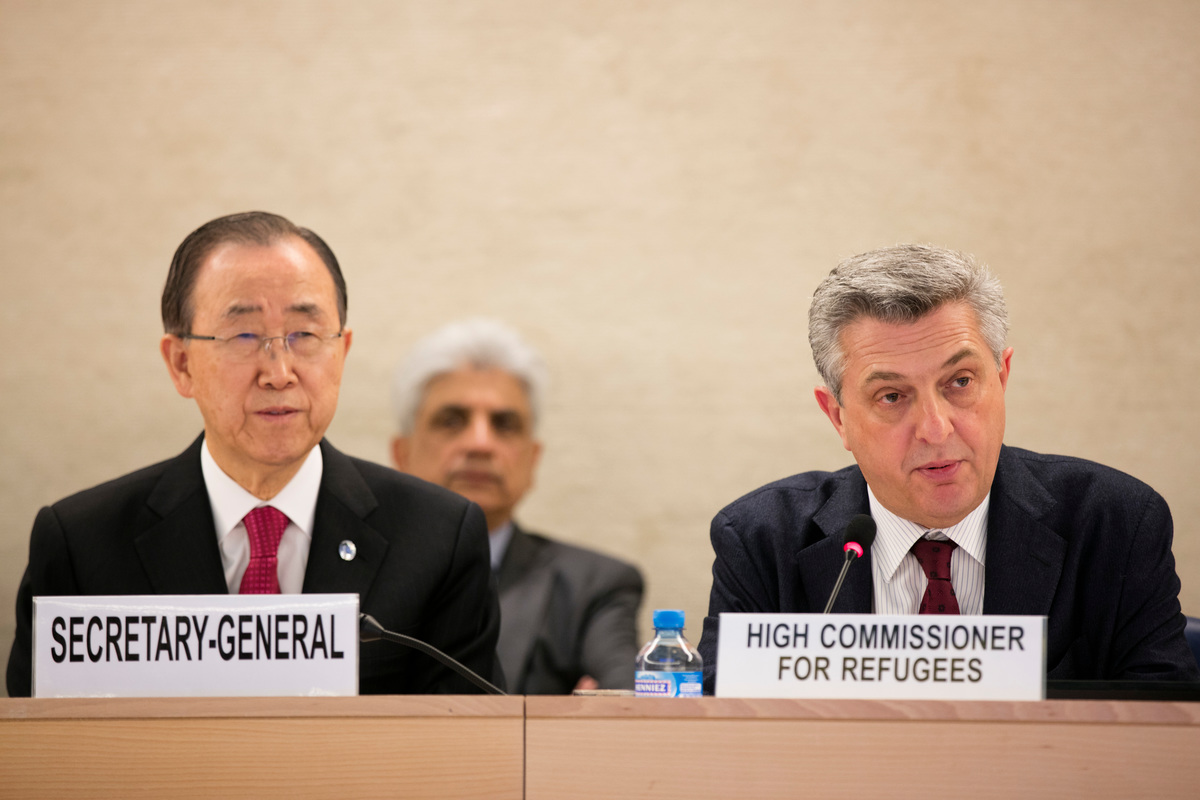Special help for special needs Syrian refugees
Special help for special needs Syrian refugees

DOMIZ CAMP, Iraq, November 28 (UNHCR) - For Syrians fleeing their homeland, it is always a difficult journey to cross borders, and especially so for people with special needs. Both Azad,* 44, and his 30-year-old wife, Maha, were stricken with polio as children.
The couple and their three children fled their home village of Qamishly in north-eastern Syria's Hassakeh governorate last August and are now in northern Iraq's Domiz refugee camp. Sitting in a wheelchair in front of the family's tent on a recent sunny day, Azad recounted their perilous escape to safety.
"It was an arduous journey," he said. "It took us an hour-and-a-half on foot between the mountains until we reached the Iraqi border. It was very difficult. Both my wife and I needed assistance. She was on crutches and I was carried the whole way by another refugee who volunteered to help me."
Shortly after their arrival and registration in the camp, they received a special shelter site for vulnerable families. "UNHCR provided us with a tent supported by a one-metre-high block wall, with an adjacent small kitchen and bathroom," Azad said.
"Later, I received another 300 blocks donated by a local construction company, and another Syrian refugee from the camp volunteered to build the walls higher so our little room is fully covered under the tent. I feel more protected from the cold winter."
Supported by her crutches, Maha was in the small kitchen preparing the food for her family. She said she appreciates the increased protection provided by the surrounding block wall. UNHCR is working to provide similar protection for all of the camp's tents, but for the time being the improved structures are going first to vulnerable families and recent arrivals.
"I feel more comfortable here," said Maha, noting the difficulties of living with special needs in this tented camp of some 23,000 people, nearly all of them Syrian Kurds. "I feel I have privacy here. We have our own bathroom and I can cook, wash dishes and do the laundry in my own space."
There are at least 158 other Syrian refugees with special needs in Domiz Camp. In partnership with local Kurdish authorities, UNHCR is providing all of them with the reinforced block walls and extra space for their own kitchen and bathroom. Over time, the plan is to provide everyone in the camp with similar facilities. So far, some 1,500 families have benefitted from the improved shelters, with another 1,300 to go.
The conflict in Syria, which began in March 2011, forced Azad to close his small grocery store in Qamishly, leaving the family without adequate income to feed their three children -- Hakim, 10, Haven, 8, and Shekria, 5.
"Despite the improved accommodation, humanitarian aid and hygiene kits we received from UNHCR [and other organizations], financial income is still the main challenge I face," Azad said. "I cannot move easily, it is my son, Hakim, who helps me to move around. Therefore, I can only do easy jobs. I need to start my own business. I need to become independent again. I don't like being dependent anymore," he added, wiping away tears.
But for the time being, Azad and his family do not feel it's safe to go back home. "There were power cuts all the time. I lost my job, and prices have risen significantly. My brother was killed two months ago. I do not want to lose my son as well. So I prefer to stay here until it is safe to go back."
* All names changed for protection reasons.
By Mohammed Abu Asaker in Domiz Camp, Iraq


